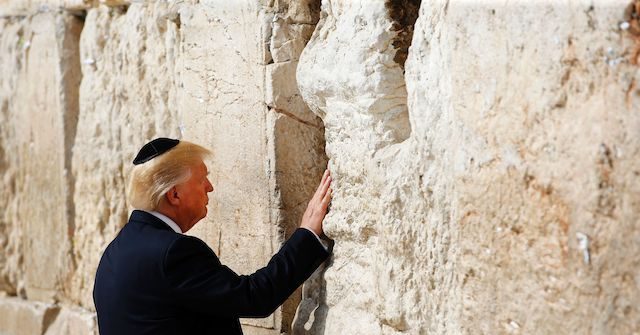In a remarkable gathering reflecting the intertwined beliefs of politics and faith, hundreds of Israeli Jews convened at the historic site of Shiloh, which once housed the Ark of the Covenant and the Tabernacle. This event was notably centered around praying for the success of former President Donald Trump in the upcoming U.S. elections. The gathering, reported by VINews, drew several attendees including Yisrael Ganz, the head of the Binyamin Regional Council, who expressed both gratitude for the event and underscored its significance in fostering a strong relationship between the United States and Israel.
The prayer gathering occurred in Ancient Shiloh, an area steeped in biblical history and meaning. Participants articulated aspirations not just for Trump’s electoral success but also for a future U.S. leader who would adhere to values rooted in justice and morality, as drawn from biblical teachings. There was a discernible sense of unity among the attendees, who collectively hoped for an election outcome that would reaffirm the legitimacy of Israel’s claim over its land, particularly in regions like Samaria, often contested by Palestinian claims. This demonstrates a deep cultural and political connection held by many Israeli citizens toward U.S. leadership and its impact on Israeli sovereignty.
The Binyamin Council has historically cultivated substantial relationships with U.S. officials, particularly those associated with the Republican Party and Trump. This willingness to engage with American political figures illustrates the shared values that Ganz spoke about during the prayer meeting—values that many see as pivotal for regional peace and stability. Clips from this fortuitous gathering will be shared at various events across the United States, thus emphasizing the global interest and implications of the U.S. electoral process on international relations, particularly those tied to the Israeli-Palestinian conflict.
Media coverage, including reports from Arutz Sheva, provided a nonpartisan angle on the prayer event, framing it as a moment dedicated to invoking support for a robust electoral process in the U.S. and fostering healthy U.S.-Israel relations. However, the overt favoritism toward Trump by participants was evident, highlighting a direct connection between their political aspirations and deep-seated beliefs about biblical prophecy and current events. This intersection of faith and politics raises questions about partisanship and the effects of such gatherings on broader diplomatic relationships.
Public sentiment reflects a climate of divided loyalties, as a recent poll revealed a notable preference among Israelis for Trump over Vice President Kamala Harris, marking a significant disparity when compared to American Jews, who lean more favorably towards Harris. This dichotomy in preferences sheds light on the complexities of the American political landscape, particularly in the context of Jewish communities both in Israel and the U.S., compounded by differing views on policies regarding Israel and its territorial claims.
Joel B. Pollak, a prominent voice in conservative media, encapsulates this discussion in his writings and broadcasts, fostering discourse around Trump’s impact on domestic and international policies. His works, including “The Agenda: What Trump Should Do in His First 100 Days” and “The Trumpian Virtues: The Lessons and Legacy of Donald Trump’s Presidency,” delve into the implications of Trump’s leadership on governance and foreign policy. Pollak’s insights further illustrate the profound effects that a leader’s values and decisions can have on ally nations, and how prayer gatherings like the one in Shiloh are emblematic of the passionate intersections of faith, governance, and international affairs.

